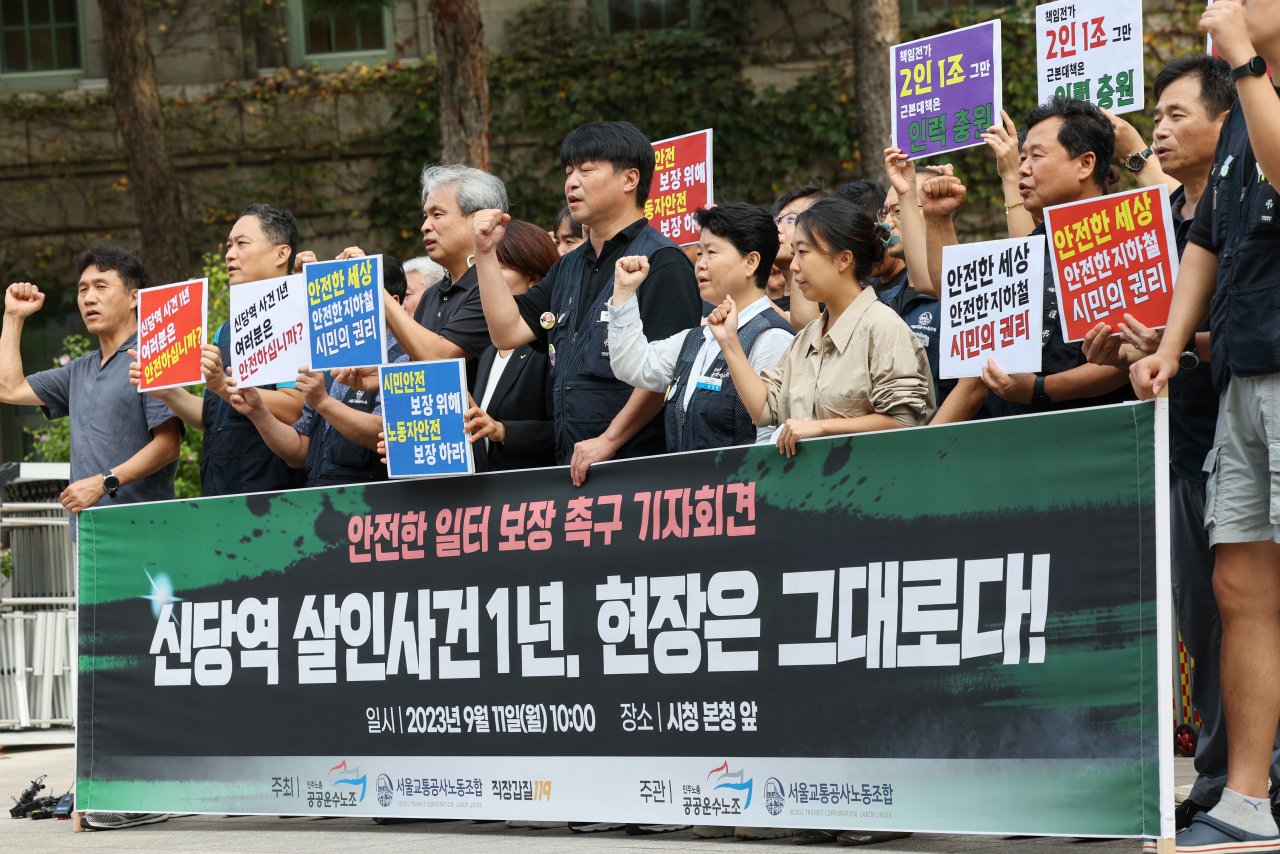A year after Sindang murder, stalking crimes persist, bills pending
7,545 booked for stalking this year
By Lee Jung-younPublished : Sept. 12, 2023 - 15:36

A year has passed since the Sindang Station murder, in which a female Seoul Metro employee was killed after being stalked by her ex-colleague, but most bills proposed since to beef up protection for stalking victims remain pending in parliament.
Korea's anti-stalking law was revised to punish perpetrators without the consent of stalking victims and a law to support stalking victims was enacted in the wake of the murder case last year. Despite the revision, the scope defining stalking as a crime remains narrow, and critics argue that more measures are needed to preemptively protect victims.
Currently, six amendment proposals to the anti-stalking law are pending at the Legislation and Judiciary Committee of the National Assembly.
Two proposals suggest a law to prevent perpetrators from contacting victims through postal mail, while a third bill calls for expanding the distance of the restraining order against potential stalkers from 100 meters to 300 m.
Another revision suggests introducing a "victim protection order" system for stalking crimes, which would allow victims to apply for a protection order directly to the court without going through an investigative agency. A fifth amendment seeks to allow the court to order the perpetrator to get a doctor's consultation on their stalking behavior.
The last pending revision suggests expanding the scope of what constitutes as stalking behavior, including cases in which the perpetrator attempted to make contact, such as making a phone call to the victim.
The anti-stalking law was revised in June this year, to allow for location tracking devices to be worn by perpetrators even before the court ruling, but the revision does not take effect until January next year.
This comes as police have booked more than 7,000 alleged stalkers this year, data released Tuesday showed.
According to police data Rep. Kwon In-suk obtained, 7,545 stalking suspects were booked by the police from January to August this year. Of them, 4,942 cases, or 65.5 percent, were sent to the prosecution.
During the last two years since the implementation of the anti-stalking law on Oct. 21, 2021, 18,362 alleged stalkers have been apprehended, and 65.1 percent of the cases were handed over to the prosecution.
Civic groups have called for enhancing the "emergency measures" and "provisional measures" to separate the perpetrator and the victim.
Emergency measures include restraining orders that ban the access of perpetrators within 100 meters of the victim’s residence and orders that ban contact via phone or online. It can be issued by the police directly. Provisional measures are stronger measures taken when the court accepts the police's request, which include not only the restraining orders but also orders to detain the perpetrator at a detention center for less than a month.
According to the National Police Agency, 11 percent of 6,030 emergency measures and 8 percent of the 12,008 provisional measures have been violated since the implementation of the anti-stalking law.
A man in his 30s who murdered his ex-girlfriend in front of her apartment in July this year committed the crime even though the court had ordered provisional measures for dating violence and stalking before the incident.



















